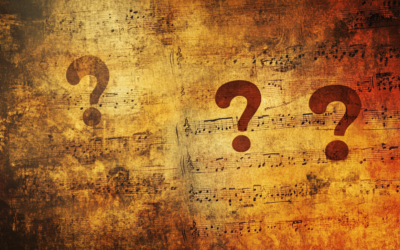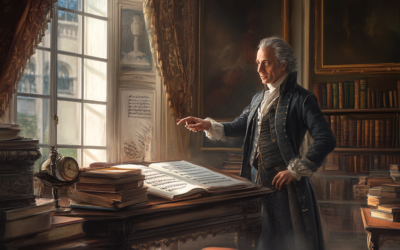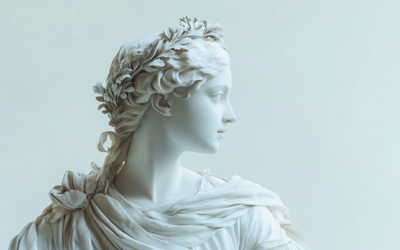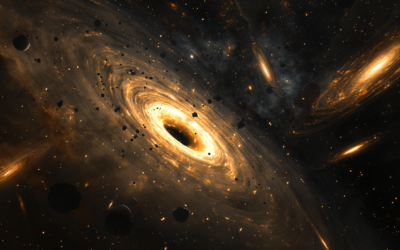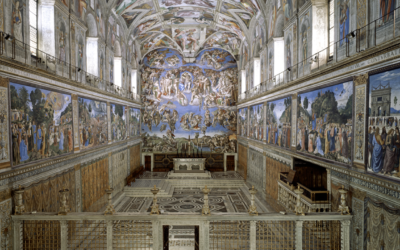The Forgotten Viennese Quartets
Mozart’s Lost Compositions or Mere Exercises?
The six “Viennese” quartets, composed by Mozart under the supervision of his father, remained hidden from public knowledge for over a decade.
There is no certainty they were written in Vienna during the summer of 1773, as claimed by scholars. Curiously, neither Leopold nor Wolfgang mention these works in their letters, and no trace of a patron or public performance exists for these or other quartets written between 1770 and 1773.
The pieces surfaced only in 1785, leading to speculation that Mozart himself had forgotten them or that they were insignificant exercises in his compositional development. Despite later attempts to produce quartets for wealthy patrons,
Mozart’s efforts in this genre during the 1770s and early 1780s show little progress, leaving more questions than answers about their true purpose and value.
Mozart: The Fall of the Gods
This book compiles the results of our studies on 18th-century music and Mozart, who has been revered for over two centuries as a deity. We dismantle the baseless cult of Mozart and strip away the clichés that falsely present him as a natural genius, revealing the contradictions in conventional biographies. In this work, divided into two parts, we identify and critically analyze several contradictory points in the vast Mozart bibliography. Each of the nearly 2,000 citations is meticulously sourced, allowing readers to verify the findings. This critical biography of Mozart emerges from these premises, addressing the numerous doubts raised by researchers.
"Did Mozart forget about these quartets because they were of no real significance, or was their obscurity a sign of deeper issues in his compositional journey?"
Mozart: The Fall of the Gods
Shortly after his experiences in Milan, Mozart crafted six “Viennese” quartets under the watchful eye of his ever-present father. Yet, these works remained hidden for over a decade. It is far from certain that they were composed in Vienna between July and September of 1773, as suggested by the Neue Mozart-Ausgabe (NMA). Neither Leopold nor Wolfgang’s letters make any mention of these compositions, nor do they reference any potential patron.
We have no records of public performances of these Viennese quartets, nor of those composed in Lodi or Milan. Thirteen quartets written between March 15, 1770, and mid-September 1773, and not a single documented concert, nor a printed edition.
Nothing was known about these pieces until 1785. Mozart didn’t even offer them to his compatriot Jean Georges Sieber, a Parisian publisher, in 1783. It seemed as though he had completely forgotten about them, almost as if he wasn’t their author. These quartets did not represent any notable compositional development for Mozart; they didn’t serve as a stepping stone in mastering the string quartet form. Indeed, only a few years later, Mozart struggled to satisfy an order from an amateur Dutch patron for a set of string quartets and flute pieces.
During the period between his journeys to Mannheim and Paris (1777-78) and his stay in Munich, Mozart composed more quartets—four with flute and one with oboe—but these are marked by little value and a style already out of fashion. Three of the flute quartets (K.285, K.285a, and K. Anh.171) were commissioned by a certain monsieur Dejean in Mannheim, a wealthy Dutch amateur. Mozart reportedly composed these reluctantly (at least, so claim German musicologists eager to excuse the resulting failures), without feeling any particular artistic ambition. Unsurprisingly, Mozart faced difficulties in securing payment from Dejean, likely because only the first quartet in D major met the patron’s expectations in terms of style, content, and length, being structured in three movements (the others are in just two).
You May Also Like
Mozart’s K 71: A Fragment Shrouded in Doubt and Uncertainty
Mozart’s K 71, an incomplete aria, is yet another example of musical ambiguity. The fragment’s authorship, dating, and even its very existence as a genuine Mozart work remain open to question. With no definitive evidence, how can this fragment be so confidently attributed to him?
Unpacking Mozart’s Early Education
The story of Ligniville illustrates the pitfalls of romanticizing Mozart’s early life and education, reminding us that the narrative of genius is often a construct that obscures the laborious aspects of musical development.
The False Sonnet of Corilla Olimpica
Leopold Mozart’s relentless pursuit of fame for his son Wolfgang led to questionable tactics, including fabricating a sonnet by the renowned poetess Corilla Olimpica. This desperate attempt to elevate Wolfgang’s reputation casts a shadow over the Mozart legacy.
Mozart’s K 73A: A Mystery Wrapped in Ambiguity
K.143 is a prime example of how Mozart scholarship has turned uncertainty into myth. With no definitive evidence of authorship, date, or purpose, this uninspired recitative and aria in G major likely originated elsewhere. Is it time to admit this is not Mozart’s work at all?
A Farce of Honour in Mozart’s Time
By the time Wolfgang Amadeus Mozart received the Speron d’Oro, the once esteemed honour had become a laughable trinket, awarded through networking and influence rather than merit. Far from reflecting his musical genius, the title, shared with figures like Casanova, symbolised ridicule rather than respect.
The Legend of Mozart’s Miserere
The enduring popularity of the narrative surrounding Mozart’s Miserere highlights the allure of the prodigy myth, but as we peel back the layers, we uncover a more nuanced picture of his life and the musical landscape of the time. The reality often contrasts sharply with the romanticized tales that have shaped our understanding of his genius.


